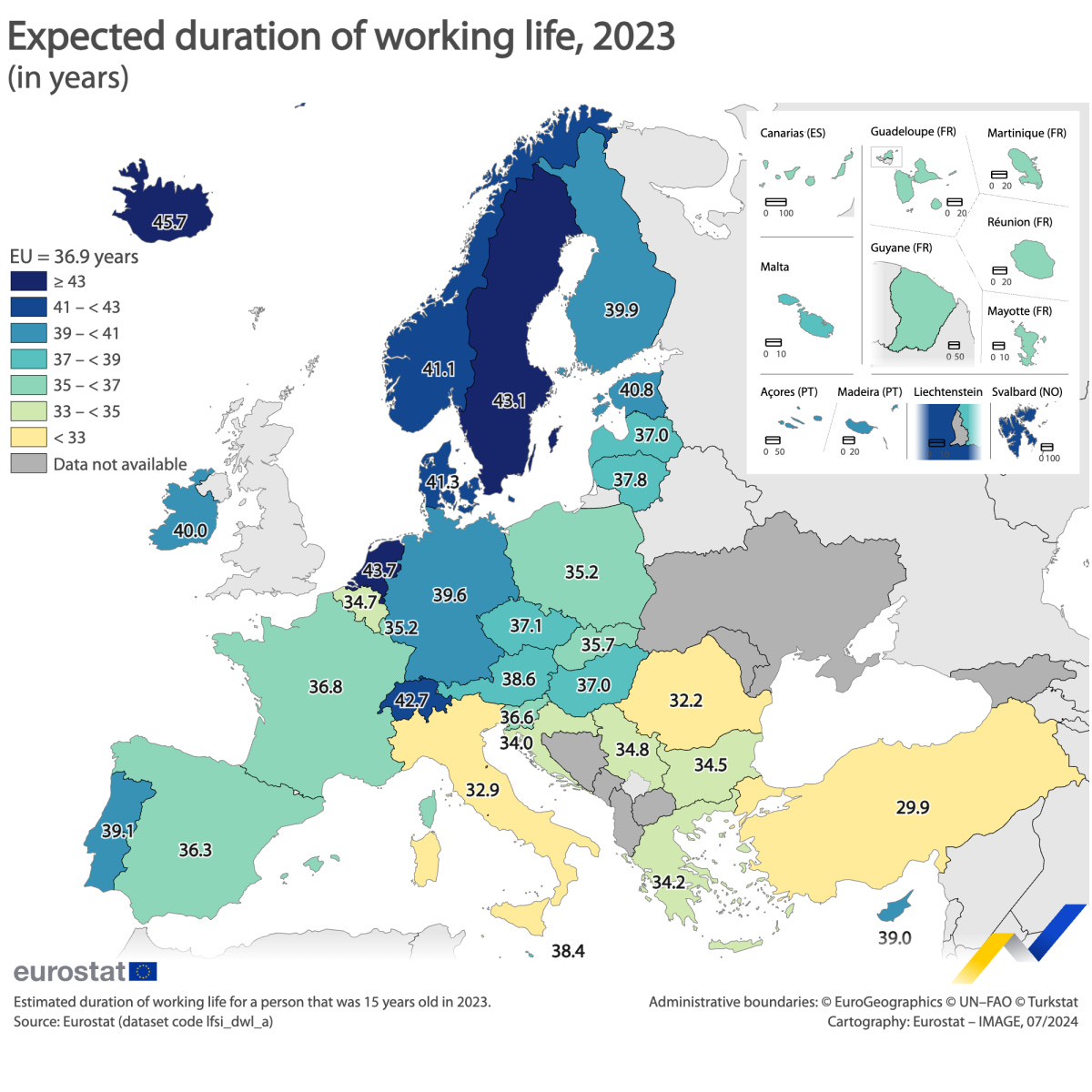Portuguese people work two years longer than the EU's average
Portugal is currently the seventh country in the European Union (EU) with the longest working life.
In 2023, Portuguese people worked an average of 39.1 years before retiring, a new study by the European Union's (EU) statistical office, Eurostat, revealed.
This means that the average working life in Portugal is currently two years longer than the EU’s average, which was 36.9 years.
The duration of working life in Portugal in 2023 increased by almost 1% a from 2022, when Portuguese people worked on average 38 ,3 years.
European data
In the EU, the expected duration of working life has varied broadly according to countries and their geographical location.
The Netherlands was the country recording the longest duration of working life, 43.7 years. Countries in north Europe follow, all with durations exceeding 40 years, Sweden (43.1 years), Denmark (41.3 years) and Estonia (40.8 years) ranked highest.
The shortest durations of working life, less than 35 years, were recorded in Romania (32.2 years) and in several south European countries, namely Italy (32.9 years), Croatia (34.0 years), Greece (34.2 years)and Bulgaria (34.5 years), followed by Belgium (34.7 years).
Portuguese outlier
In this context, Portugal seems to be an outlier in southern Europe. And this trend is not expected to turn around, as the retirement age of the Portuguese continues to rise. In 2025, it should be 66 years and seven months, plus three months compared to this year.
In 2023, differences in the average number of years of working life between men and women were observed in all countries. In general men are expected to work longer than women, with north European countries showing a gender gap below the EU average of 4.3 years.
In this indicator, too, Portugal was also closer to north European countries, with a below-EU average gender gap of around two years.
Note: The indicator on duration of working life is an estimation of the number of years a person, currently aged 15 years, is expected to be in the labour force (i.e. to be employed or unemployed) throughout his or her life. It aims to provide a different point of view on the labour market, looking at the entire life cycle of persons in the labour force rather than on specific states in the life cycle, such as youth unemployment or early withdrawal from the labour force.






